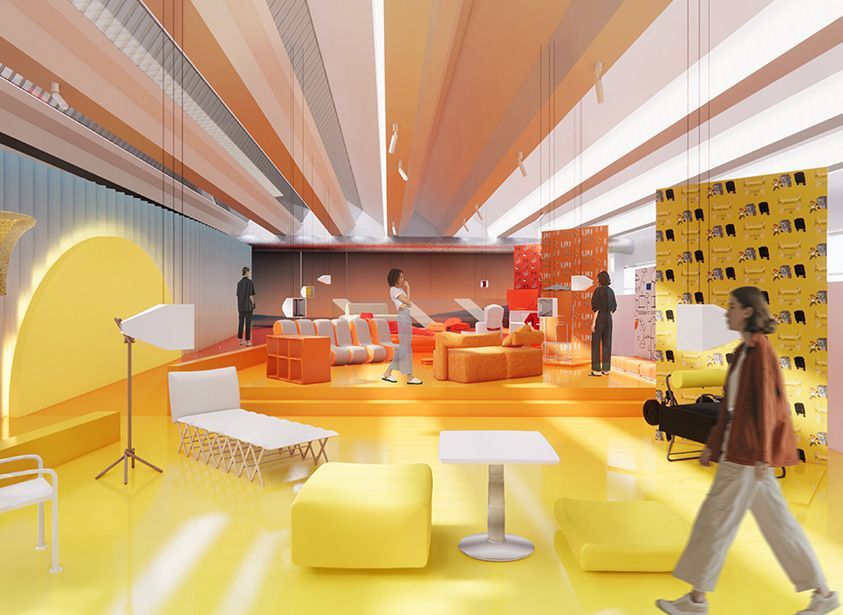Professor Elisa Chiodo at Munich Creative Business Week

Elisa Chiodo, professor at Domus Academy, took the stage at Munich Creative Design Week to explore a powerful topic: Ethics and Innovation in Design. Read more about it and watch the video to relive the talk!

“Designers right now are connectors, are translators, because they need to talk several languages and break boundaries.” – Elisa Chiodo
At Munich Creative Business Week, Elisa Chiodo—designer, strategist, and Programme Leader of Domus Academy Master in Visual Brand Design and Master in Business Design—delivered a compelling presentation that redefined the modern designer’s role. Her talk emphasised the need for a transdisciplinary approach that integrates creativity, strategic thinking, and ethical responsibility.
Chiodo portrayed today’s designer as more than a specialist—someone who interprets, connects, and operates across disciplines. Drawing from her diverse background in communication design, education, and consulting, she highlighted how contemporary design flourishes at the intersections of business, empathy, and innovation.

A central theme of the talk was the ethical responsibility of designers. According to Chiodo, ethical practice starts with self-awareness and extends outward to clients, communities, and the environment. This perspective forms the foundation of Domus Academy’s pedagogical approach, which is rooted in experiential learning. Students engage in real-world projects, working collaboratively across disciplines to develop meaningful, socially responsive solutions.
STUDENT PROJECTS: DESIGN WITH PURPOSE
Chiodo showcased several student projects that embody this systemic and ethical design philosophy:
KindBody – FemTech Telemedicine Platform
Developed during an entrepreneurship workshop, this project addresses healthcare access for women in Asia, focusing on sensitive topics like fertility and hormonal wellness. Students tackled cultural and infrastructural barriers through deep research and strategic planning. Their process followed a structured, iterative design model, combining user experience, branding, and a dual business strategy tailored for impact.
The TerraRosa PiggyBank – Ethical Learning Through Play
This project reimagined financial education for children through a culturally grounded product made from traditional Italian ceramic. It aimed to teach values like sustainability and mindful consumption. Students developed an educational campaign and production plan that involved local artisans and community stakeholders, highlighting low-tech solutions with high emotional and ethical value.
Simply Roots – Urban Gardening for Digital Nomads
Focusing on climate and wellbeing, Simply Roots is a digital platform for creating personalised vertical gardens using local plant suppliers. Conceived in Milan, it was designed for urban dwellers and digital nomads seeking connection to nature. The platform integrates AI-driven guidance, community engagement, and educational content, with a scalable model targeting partnerships in education and elder care.
Building a Systemic and Ethical Design Mindset
Through these projects, Chiodo underscored the importance of systemic thinking and collective responsibility in design education. The Domus Academy model encourages students to explore the broader ecosystem surrounding a design problem—including its actors, resources, and long-term impacts.
The presentation concluded with a powerful challenge to future designers: to define the kind of impact they want to make and embrace design as a force for ethical and sustainable change.
The talk emphasised the importance of cross-disciplinary collaboration and moral inquiry in shaping designers who are capable of building better communities. From healthcare to education and the environment, the showcased projects demonstrated how design can become a tool for tangible and positive transformation.
Watch the video to relive the event!






